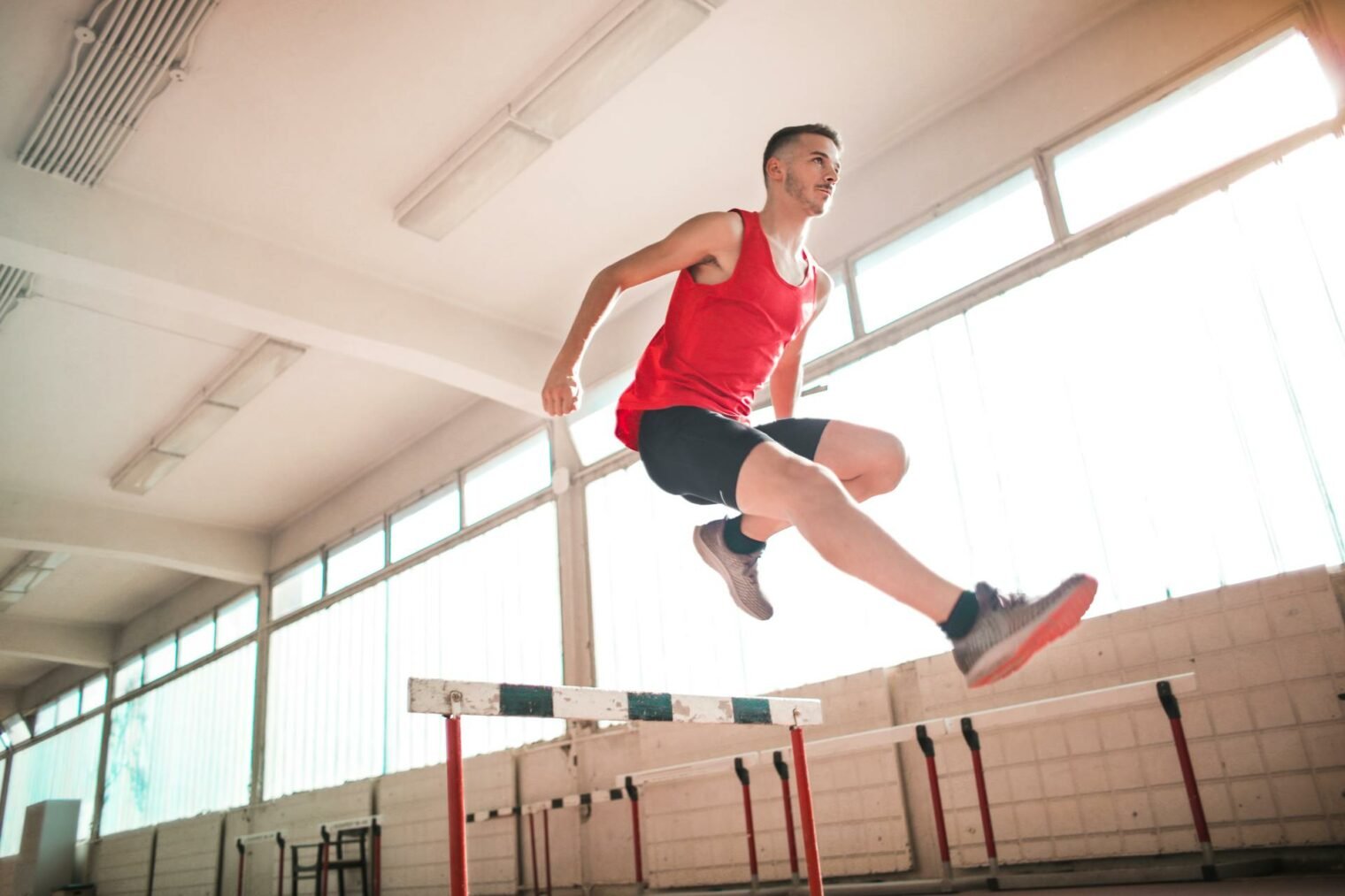Cannabis and Sports Performance: How Athletes Are Incorporating Marijuana into Training and Recovery

Table of Contents
The combination of cannabis and sports performance is an interesting one. Athletes often look for ways to improve their training and recovery. Recent studies show that some are turning to cannabis for help. This article will explore how marijuana affects athletic performance, its potential benefits in sports, and the ongoing debate around its use.
Stay tuned to learn more about cannabis and sports performance.
How Cannabis Affects Athletic Performance
Cannabis can impact athletic performance through its effects on exercise capacity and cardiovascular function. Chronic cannabis use has been associated with impairments that could potentially affect an athlete’s abilities.
THC’s effects on exercise capacity and cardiovascular function
THC, the main psychoactive compound in marijuana, can impact exercise performance and cardiovascular function. Studies suggest that THC might reduce exercise capacity by influencing heart rate and blood pressure during physical activity.
This increase in heart rate could make training sessions more challenging for athletes, particularly those engaged in endurance sports.
Moreover, THC’s effects on the cardiovascular system may lead to variations in how blood flows to muscles during exertion. Athletes might experience a decrease in performance due to these changes, highlighting the need for further research on cannabis use and its implications on sports performance.
Moving forward, it’s crucial to explore not only the drawbacks but also the potential benefits associated with chronic cannabis use in athletic settings. The combination of cannabis and sports performance is a fascinating subject.
Impairments associated with chronic cannabis use
Chronic cannabis use can lead to impairments in cognitive function and coordination, affecting an athlete’s ability to perform optimally. Studies suggest that long-term marijuana use may result in memory issues, reduced attention span, and a decline in decision-making skills.
Additionally, chronic cannabis consumption has been linked to decreased motor coordination and slower reaction times, which could compromise an athlete’s agility and precision during sports activities.
Athletes should be aware of the potential impairments associated with chronic cannabis use as it may impact their athletic performance and increase the risk of injury on the field or during training sessions.
Potential Uses of Cannabis in Sports Training and Recovery
Cannabis in sports training and recovery is being explored for pain and inflammation management. It is also considered for improving sleep quality and reducing anxiety among athletes.
Pain and inflammation management
Cannabis has been explored for its potential to manage pain and inflammation in athletes. Its compounds, such as CBD, have shown promise in reducing muscle soreness and discomfort after intense workouts.
Athletes are turning to cannabis products to alleviate pain associated with sports-related injuries, offering a natural alternative to traditional pain management strategies. The anti-inflammatory properties of cannabis may provide relief for athletes dealing with the physical demands of training and competition.
Furthermore, incorporating cannabis into recovery routines may help reduce the reliance on opioids and other pharmaceuticals commonly used for pain management in sports. Athletes are discovering the potential benefits of cannabis in addressing acute and chronic pain, potentially improving their overall well-being during demanding physical activity. Cannabis and sports performance might well be something you need to think about.

Improved sleep and anxiety reduction
Transitioning from pain and inflammation management, another potential use of cannabis in sports training and recovery is improved sleep and anxiety reduction. Athletes are exploring the benefits of CBD for its calming effects, which may aid in better sleep quality and decreased anxiety levels.
Incorporating cannabis products into their routine, athletes seek to improve overall mental well-being, contributing to enhanced performance and recovery.
Neuroprotective properties for traumatic brain injuries
Cannabis shows potential in providing neuroprotective properties for traumatic brain injuries. Research suggests that compounds found in cannabis, such as CBD, may help reduce inflammation and oxidative stress in the brain, which are common responses to traumatic brain injuries.
These properties have led to increased interest in studying cannabis’ role in promoting recovery and protecting against long-term damage from head injuries among athletes and individuals involved in physical activities. Cannabis and sports performance might help with long-term damage.
The neuroprotective effects of cannabis on traumatic brain injuries could offer new possibilities for managing these conditions within the sports community. Such research might also contribute to broader discussions about the potential therapeutic applications of cannabis for neurological conditions beyond sports-related injuries.
The Debate on Cannabis Use in Sports
Athletes’ attitudes toward cannabis vary, with some advocating for its use in training and recovery while others raise concerns about safety and legality. The debate around cannabis in sports focuses on considerations for athletes regarding performance-enhancing potential and adherence to anti-doping regulations.
Attitudes of athletes towards cannabis
Athletes’ attitudes towards cannabis vary widely. Some athletes view cannabis as a natural alternative for pain management and stress relief, while others are concerned about the potential negative impact on their athletic performance and endorsement opportunities.
The growing acceptance of cannabis in society has led to an increasing number of athletes openly discussing its use, leading to more nuanced conversations about the role of cannabis in sports.
Many athletes are advocating for further research into the potential benefits and risks of cannabis use in sports, hoping to influence policy changes that could allow for regulated and informed use among athletes.
Safety considerations and prohibited list
While attitudes towards cannabis are evolving, there are important safety considerations and regulations for athletes to abide by. The prohibited list outlines substances that can potentially compromise fair play or harm the athlete’s health.
It is crucial for athletes to be aware of these restrictions and to prioritize their well-being when incorporating any substance into their training regimen.
Latest Research and Recommendations
New research is revealing evidence of cannabis as a potential performance enhancer for athletes. It also explores the effects on mental health and academic outcomes, along with considerations for athletes with impairments.
Evidence of cannabis as a performance enhancer
Recent studies have shown that cannabis may have the potential to enhance athletic performance. The use of cannabis, particularly CBD, has been linked to reducing inflammation and pain, potentially aiding in faster recovery after intense training or competition.
In addition, some research suggests that cannabis could improve sleep quality and reduce anxiety levels, contributing to overall better physical performance for athletes. Moreover, cannabinoids like THC and CBD have demonstrated neuroprotective properties which could be beneficial for athletes recovering from traumatic brain injuries.
These findings indicate that cannabis has the potential to positively impact an athlete’s performance by addressing various aspects such as pain management, recovery time, and mental well-being.
Cannabis and sports performance: Effects on mental health and academic outcomes
Transitioning from the impact of cannabis on athletic performance, it is essential to consider its effects on mental health and academic outcomes among athletes. Research suggests that cannabis may contribute to anxiety reduction and improved sleep quality, potentially enhancing overall mental well-being.
Moreover, some studies indicate potential neuroprotective properties for traumatic brain injuries, which could have implications for cognitive function and academic performance in athletes.
Understanding the influence of cannabis on these aspects is crucial in providing comprehensive support for athletes who incorporate marijuana into their training and recovery routines with cannabis and sports performance.
Considerations for athletes with impairments
Athletes with impairments should carefully consider the potential effects of cannabis on their specific conditions. It is important for them to consult with medical professionals familiar with both their impairment and cannabis use, in order to understand any potential interactions or risks.
Additionally, athletes with impairments should take into account the possible impact of cannabis on their motor skills, cognitive function, and overall well-being before incorporating it into their training and recovery routines.
For athletes with impairments, careful consideration must be given to how cannabis may affect pain management and muscle recovery in relation to their specific condition. Understanding the potential benefits and risks associated with using cannabis for pain relief or improved sleep can help ensure that athletes make informed decisions about integrating cannabis into their training and recovery regimens.
Cannabis and Sports Performance Conclusion
Incorporating cannabis and sports performance into sports training and recovery is a topic of growing interest among athletes. Research suggests potential benefits for pain management, improved sleep, anxiety reduction, and enhanced recovery.
As attitudes shift and new evidence emerges, the debate around cannabis use in sports continues to evolve. Athletes are exploring the potential uses of cannabis to optimize their performance and well-being.


